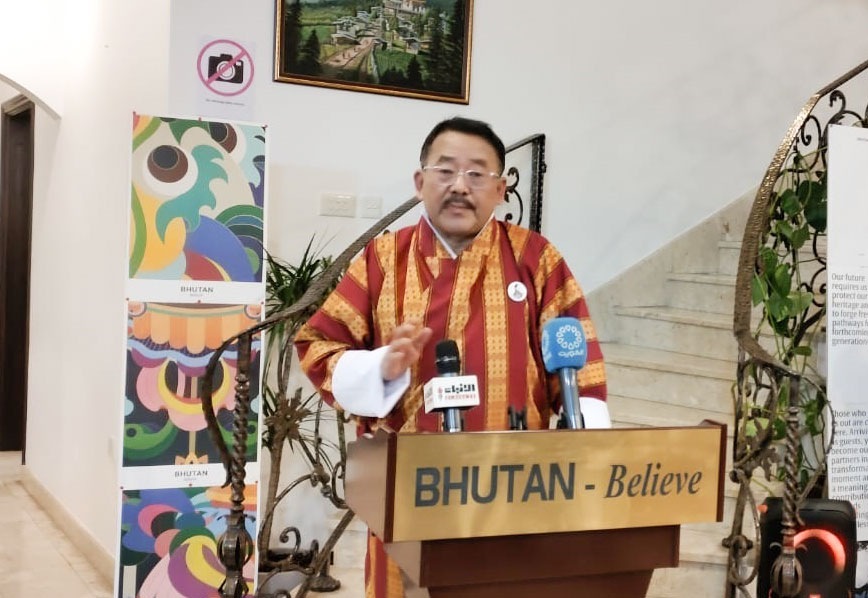The Ambassador of the Kingdom of Bhutan to Kuwait, HE Chitim Tenzin, said his country has reopened its borders to international guests after the COVID-19 pandemic, as of September 22, 2022.
During a press conference, he revealed a new tourism strategy adopted by his country, supported by transformations in three main areas, namely, reinforcements for sustainable development policies and infrastructure, and raising the level of guest experience, pointing out that Bhutan’s policy of high-value tourism has existed since they began welcoming our guests in 1974.
He pointed out that about 300 Kuwaitis visited his country during the years preceding the pandemic, other than official visits from the Kuwaiti government, explaining that visa procedures are easy and take about 5 days to issue.
He explained that the Kuwaiti-Bhutanese talks regarding the opening of a direct flight had led to advanced results, but the Corona pandemic had postponed the opening of the line, indicating that the discussions between the two sides in this regard could resume next year.
He also called on Kuwaitis to increase visits to his country, saying that it is a tourist country with distinction and that its atmosphere is suitable throughout the year, noting that Indians alone do not need a visa to enter Bhutan.
He stated his country had launched, during a special ceremony, a new brand, “Bhutan Believe,” as this brand aims at optimism, renewal and the Kingdom’s ambition as it opens its doors to guests again.
He explained that his country has developed its tourism infrastructure and there are a number of international hotels in his country of all categories, in addition to the good hospitality that Bhutanese enjoy.
He said his country, which has a population of about 750,000 citizens, is characterized by its innovative policies related to gross domestic happiness, similar to the gross domestic product, and is famous for being a land where joy prevails through the level of health, education, community vitality, and protection of the land and nature reserves.
He concluded by saying that the Bhutanese government and people believe in sustainability and the importance of preserving nature, which the Kingdom sees as one of the most important ingredients of happiness for people, not the industrial revolution as most countries in the world seek, and does not measure success by technological development, which the people of Bhutan believe kills the good mood, and they measure success by indicators of happiness and their nationalism.

